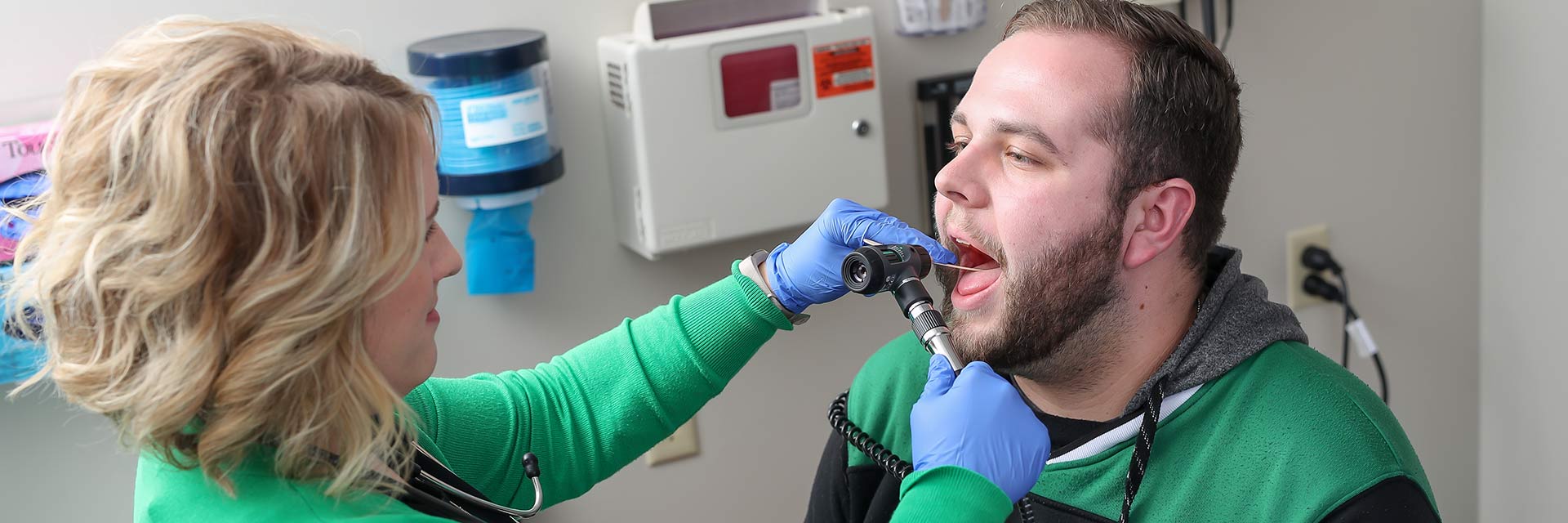
Medical Services
Licensed professionals provide a variety of medical care.
Allergy injection therapy is administered by appointment only according to the instructions provided by your allergist. Patients are required to wait in the SHS clinic for 30 minutes following an injection.
Initial therapy (first injections) must be completed at the allergist's office.
Serum and records (orders) may be hand carried to SHS or mailed to:
UND Student Health Services
2891 2nd Ave. N Stop 9038
Grand Forks, ND 58202-9038
As respiratory illness season draws near, it is necessary to take precautions to keep yourself and others healthy. Viruses such as COVID-19, influenza, and respiratory syncytial virus (RSV) can cause respiratory illness. Staying current with your vaccines is your best protection.
Flu shots are available NOW at Student Health Services (SHS) for all students, faculty, and staff. Students can schedule an appointment online and faculty and staff should call SHS at 701.777.4500 to schedule an appointment.
COVID-19 vaccines are available NOW at Student Health Services for all students, faculty, and staff. Call to schedule an appointment at 701.777.4500.
COVID-19 home tests will be available from the US Government at COVIDtest.gov in late September 2024.
It is important to:
- Wash your hands often with soap and water.
- Get all recommended vaccinations.
- Clean your spaces regularly.
- Stay home when sick.
- Cover your coughs and sneezes.
- Contact your medical provider as needed.
Routine care by medical providers is available during your time at UND. Examples include:
- Physical exams (Pre-op, Sports, General Medical, ROTC)
- Acute care for illness
- Minor Injuries
- Management of chronic conditions
- Routine health screenings (Preventive Care)
FAA physicals are available to UND students/faculty/staff, private and commercial pilots, and military airline personnel.
UND provides several immunizations and TB testing.
A variety of services are provided:
- Contraceptive Counseling (Birth Control)
- IUD & Nexplanon® Insertion & Removal
- STI Screening/HIV Testing
- Pregnancy Testing
- Pap Smears
- Pre-exposure Prophylaxis (PrEP)
Skin care consultations are available for:
- Skin care routines
- Common skin conditions such as acne, eczema, psoriasis, etc.
- Prescription medications
- Isotretinoin (a.k.a. Accutane)
Skin care products can be ordered through PCA®. When checking out, make sure to add "UND Student Health" and "Grand Forks" as your provider.
Pre-travel consultations are provided by a medical doctor.
Travel vaccines are available based on your travel destination and your immunization history. Check with your insurance company prior to getting any vaccines.
Schedule a consultation at least 8 weeks prior to your departure date.